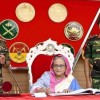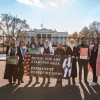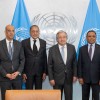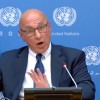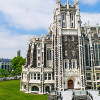If you’re surprised by Saudi Arabia’s fight with Canada, you haven’t been paying attention


In a tweet on Friday, the Canadian Foreign Ministry said it was “gravely concerned” by the arrest of Saudi activist Samar Badawi and other women’s rights campaigners, and called for their release.
Since then, the Saudi government has responded with a steady string of retaliatory measures, expelling the Canadian ambassador from Riyadh and recalling the Saudi envoy to Ottawa, suspending Saudi state airline flights to Toronto, and ending thousands of Saudi scholarship programs in Canada.
Then on Tuesday, Saudi authorities announced they would halt all medical treatment programs in Canada and transfer Saudi patients to hospitals outside the country.

The kingdom also said it plans to freeze future trade relations between the two countries.
Foreign Minister Adel al-Jubeir said Saudi Arabia would not tolerate any foreign meddling in its internal affairs, and suggested his country would not be backing down anytime soon.
“Canada has made a mistake and needs to fix it,” al-Jubeir said Wednesday. “The ball is in Canada’s court.”
Saudi Arabia’s response has struck some observers as a disproportionate overreaction to a relatively routine criticism of the country’s human rights record. US Senator Bernie Sanders described it as “outrageous” on Tuesday.
Regional analysts, however, say the Saudi reaction is consistent with Mohammed bin Salman’s heavy-handed – and often thin-skinned – approach to power since the 32-year-old took over as Crown Prince.
“Since Mohammed bin Salman has ascended to power, there’s been an intensified repression of dissent,” said Human Rights Watch Saudi Arabia researcher Hiba Zayadin. “What we’re seeing now is that he doesn’t want to be held accountable in any way, whether that’s by the Saudis themselves or by the international community.”
In the year since he was promoted to first-in-line to the throne, MBS, as he is known, has embarked on an aggressive mission to modernize Saudi Arabia and reassert the country on the international stage.
At home, he locked up hundreds of the country’s business elite (including some of his own relatives and other Saudi princes) during a so-called “anti-corruption” drive, and used the billions of dollars recovered to ease the pain of austerity.










